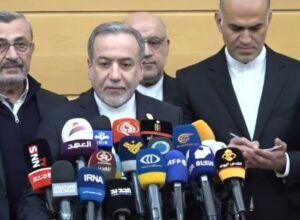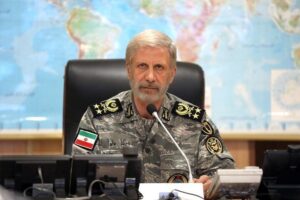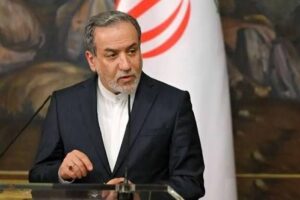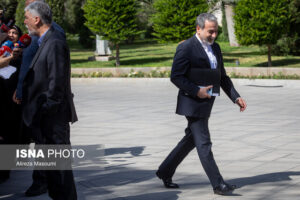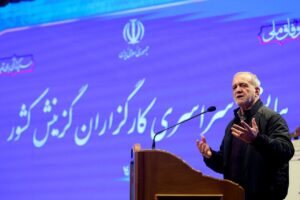Seyed Abbas Araghchi, in a meeting attended by President Masoud Pezeshkian and deputy ministers and officials of the Ministry of Foreign Affairs, elaborated on the actions of the diplomatic apparatus during and after the 12-day war, highlighting the synergy between diplomacy and the battlefield.
Foreign Minister: Diplomacy Stood Side by Side with the Military
Araghchi stated, “All of us at the Ministry of Foreign Affairs stood alongside our military forces, and the 12-day war was a clear example of coordination between the battlefield and diplomacy.” He added, “Our armed forces heroically defended the nation against enemies. Simultaneously, the soldiers of diplomacy were tirelessly active. On the morning of the attack on June 13, our managers were present at the Ministry by 6 a.m., and during this period, many stayed at the Ministry, some not returning home for days.”
He continued, “Our forces defended the plight of the Iranian people and the legitimacy of self-defense against a blatant aggression. Of course, the Ministry of Foreign Affairs is part of the government, which overall performed brilliantly.”
Resistance of Armed Forces and Exceptional Government Management Forced the Enemy to Seek an Unconditional Ceasefire
Araghchi noted, “What forced the enemy to retreat and request an unconditional ceasefire was both the resistance of our armed forces and the exceptional management of the government in ensuring no disruption, weakness, or shortcomings occurred in running the country’s affairs.” He added, “The resilience of the people, alongside your soldiers in diplomacy and the Ministry of Foreign Affairs, was remarkable. During those 12 days, we carried out an extensive array of diplomatic actions. As a result of phone calls, efforts by Iran’s embassies abroad, and other measures, over 120 countries condemned the attacks against Iran and expressed solidarity with us. Apart from the UN Security Council and the IAEA Board of Governors, whose positions are predictable, no international organization or institution failed to support Iran.”
Araghchi further emphasized, “Organizations like the Shanghai Cooperation Organization, the Non-Aligned Movement, the Gulf Cooperation Council, the Arab League, and the African Union, along with many global leaders, acknowledged the righteousness of the Iranian people. This was particularly significant as Iran was attacked while engaged in diplomacy and nuclear negotiations, demonstrating who truly pursues diplomatic solutions to international issues and who resorts to force, bullying, and domination. This proved Iran’s righteousness during those 12 days, and our efforts in international arenas continue.”
Documenting War Crimes
Iran’s Foreign Minister added, “In collaboration with the Legal and International Affairs Department of the Presidency, we are documenting the crimes committed. In recent days, the Ministry has been engaged with issues concerning Gaza, with several phone calls made to coordinate efforts to halt the atrocities in Gaza, where starvation is being used as a weapon and people are kept under food and medical sieges to extract political concessions in ceasefire talks. These efforts have been thwarted by the resistance of the people of Gaza.”
Araghchi concluded, “What gave me strength was President Pezeshkian’s spirit, as we received instructions and coordinated efforts, drawing on his strong and vibrant morale during those challenging times.”

